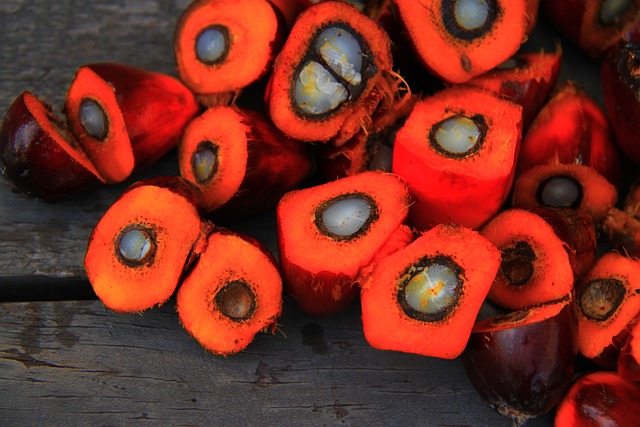
-
Coconut industry stakeholders and Philippine Coconut Authority sign MOA to investigate and combat the reported rampant smuggling of palm oil
-
Palm oil smuggling has allegedly cost the government P45 billion in revenue losses over the past six years, prompting President Marcos Jr. to enlist the industry groups in fighting the menace
-
An industry leader says his investigations showed unscrupulous traders are importing palm oil purportedly as compounding agent for animal feeds but refine the commodity into cooking oil and resell it on the market
Coconut industry stakeholders emboldened by a mandate from Malacañang have banded with the Philippine Coconut Authority (PCA) to jointly investigate and fight the rampant smuggling of palm oil that has cost the government P45 billion in revenue losses.
The PCA formalized the united front by signing a memorandum of agreement with the Federation of Philippine Industries Inc. (FPI), Coconut Oil Refiners Association (CORA), and Fight Illicit Trade (FightIT) to examine and develop ways to combat smuggling.
Under the MOA, the groups will also monitor import transactions harmful to the domestic coconut industry, as well as prevent the proliferation of substandard products in the market.
The MOA requires the signatories to discuss constantly to work out a reporting system that will identify and apprehend various illicit activities that are seriously affecting the coconut industry.”
Government revenue losses from the smuggling of palm oil are estimated by FPI to be in billions of pesos at the same time that this illicit activity is hurting the growth of the local coconut industry.
Initially, the groups have to investigate thoroughly the technical smuggling of palm oil that was brought to public attention by Albay Rep. Joey Salceda in a report to Congress, said FPI chairman and CORA president Jesus Arranza.
Salceda disclosed that technical smuggling of the commodity has led to a government revenue loss of P45 billion over six years. The lawmaker said unscrupulous traders are misdeclaring palm olein that they import as purportedly for compounding animal feeds.
Unknown to government, these palm olein imports are refined into cooking oil for human consumption, Salceda claimed.
Arranza said it was Salceda’s report that prompted him to look deeper into palm olein smuggling and his spadework paid off when he found priceless clues.
“I managed to get hold of official documents that apparently confirm the technical smuggling of palm olein. I already reported this to President BBM (Ferdinand Marcos Jr.), and thankfully the Office of the President promptly ordered the Department of Agriculture (DA) to act on the matter,” Arranza was quoted by reports as saying.
Arranza said he told Marcos in a letter that FPI had received reliable reports and obtained documents that may support a thorough investigation and nail down the unscrupulous importers who had been diverting imported palm olein to purposes other than for compounding animal feeds as they had declared to avoid paying value-added tax (VAT) and other taxes and duties.
Arranza said a big portion of the imported palm olein is being diverted for sale to the following:
- Producers of biodiesel who use the commodity as an additive to diesel fuel
- The retail market (public markets, groceries, supermarkets, and sari-sari stores) as cooking oil for repackaging and eventual sale to the consuming public.
Among other tasks the MOA signatories must also undertake jointly are:
- To conduct scientific research into developing high-value products to maximize the full potential of the coconut product;
- To conduct product selection that will best fit intercropping to make full advantage of the spaces in between coconut trees;
- To conduct any and all other activities that will redound to the benefit of the local industry as well as the coconut farmers.
Arranza said that with the MOA signatories’ mandate coming directly from Marcos, “we are leaving no stone unturned in our probe and, at the same time, hopefully, we can come up with mechanisms that will finally put an end to this technical smuggling of palm oil”.




